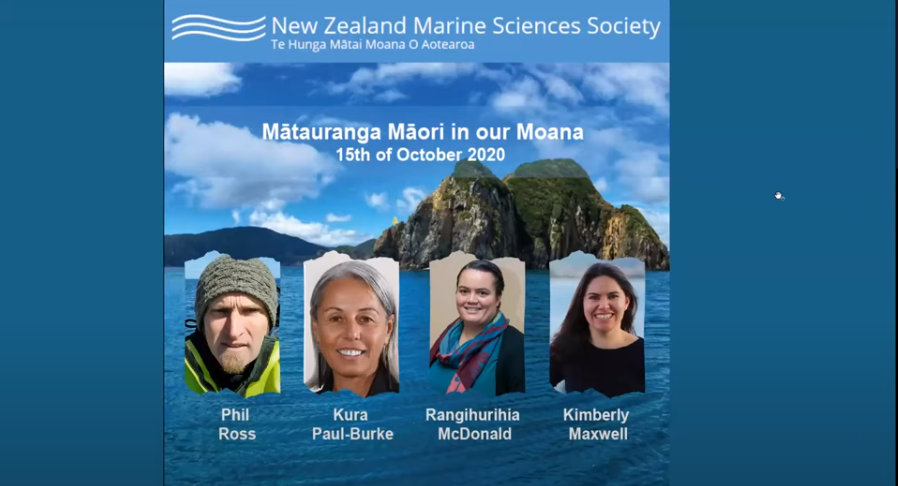
Moana connections – Whakatōhea Moana Plan and waka practitioners navigating a changing marine climate
Whakatōhea Moana Plan
As part of the project, project partner Whakatōhea Iwi is developing a Moana Plan, a marine and coastal plan outlining Whakatōhea values, goals and aspirations for their rohe moana. Approximately 17,000 people affiliate to Whakatōhea. The tribal lands are situated in the eastern Bay of Plenty – Te Moana-nui-a-Toi, and iwi assets are administered by the Whakatōhea Maori Trust Board. Whakatōhea are in the process of Treaty grievance settlement, and amidst this are managing interests in their rohe moana, including customary and commercial fisheries, the first open ocean aquaculture mussel farm in the world operated by Whakatōhea Mussels Opotiki Limited, the Ōpōtiki Harbour development, and recognised Marine Customary Title and Protected Customary Rights through the Marine and Coastal Area Act.
The importance of human connection with our environment and the value of mātauranga in widening the lens through which we view and take care of our ocean is emerging within the He Papa Moana work theme of the Moana Project.
Taking its starting point in the patere, ‘Te Tapu o Muriwai,’ a traditional chant about the life and times of Whakatōhea’s eponymous ancestress Muriwai which has been handed down through generations, the Moana Plan aims to highlight a range of activities which will maintain or enhance the mauri of the Whakatohea moana. Starting with the Whakatōhea kaitiaki structure, the plan moves on to identify Whakatohea Uara (values and interests) and Raruraru (concerns). Based on these, the Moana Plan identifies Aheinga (priorities) which guide future actions and policies.
Hononga, or connections, are specifically mentioned and also underlie many of the other aheinga, because it is through Whakatohea connections with their rohe moana that matauranga, kaitiakitanga, and tikanga have developed and are practiced.
The plan is drafted and is expected finalised later this year.
Mātauranga Waka
Connections between humans and the ocean is also the focus of PhD student Rangihurihia MacDonald (Ngāti Maniapoto), who is just finishing her PhD at Waikato University. Rangihurihia has been exploring the impacts of climate change on waka voyaging and how mātauranga waka can contribute to a climate change response. As they travelled thousands of miles across the sea to get to Aotearoa, Māori are the original oceanographers of our country. Intimate mātauranga Māori of the ocean, the stars and the weather is kept alive in Aotearoa’s traditional waka community of noninstrument navigators.
For her PhD, Rangihurihia interviewed members of the waka community, exploring their wisdom and views on climate change. Her findings centre around the ancient wisdom of whanaungatanga (relationships) and how by viewing our environment as a relative rather than a resource, we have a better mindset for looking after it, exerting kaitiakitanga or guardianship. Her work demonstrates that connection leads to protection, an important lesson for a coming climate change response.
Published Papers
Ocean resource use: building the coastal blue economy.
The Importance of Connected Ocean Monitoring Knowledge Systems and Communities.
Bax, N., Novaglio, C., Maxwell, K. H., Meyers, K., McCann, J., Jennings, S., Frusher, S., fulton, E. A., Nrusey-Bray, M., Fischer, M., Anderson, K., Layton, C., Reza Emad, G., Alexander, K. A., Rousseau, Y., Lunn, Z. and Carter, C.G.
Kaiser, Brooks A., Hoeberechts M., Maxwell K., Eerkes-Medrano L., Hilmi N., Safa A., Horbel C, Juniper S. K., Roughan M., Lowen N. T., Short K. and Paruru D.
Presentations
Indigenous led science collaborations toward a productive ocean A New Zealand case study. This presentation was a part of the UNESCO Ocean Decade featuring Associate Professor Maui Hudson (University of Waikato) detailing Whakatōhea’s partnership with the Moana Project.
The sixth webinar of the Ngā Kōrero series put a spotlight on work that weaves Mātauranga Māori (indigenous knowledge) with science for positive outcomes for te moana.
From Aspirations to Action, developing the Whakatōhea Rohe Moana Plan. This recording features Associate Professor Maui Hudson (University of Waikato) as part of the WWF Changing Tides webinar series.
2020 NZ Marine Science Society Webinar on Mātauranga Māori in our Moana. This series features Dr Phil Ross, Professor Kura Paul-Burke, Rangihurihia McDonald and Dr Kimberley Maxwell.







